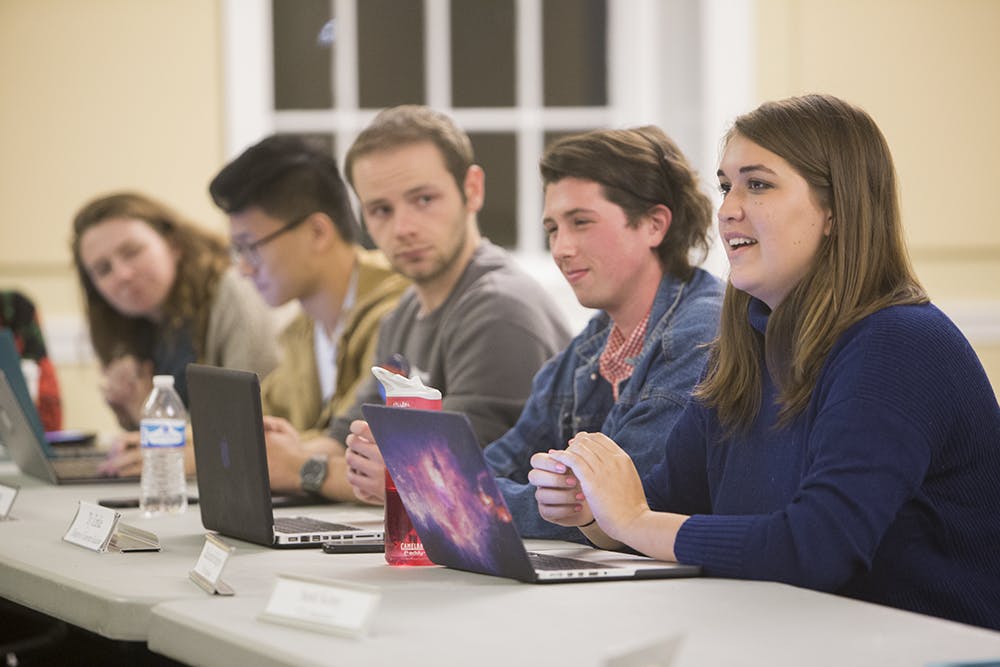A recent letter asking University President Teresa Sullivan to stop using Thomas Jefferson as a “moral compass” in emails to the University community was the focus of discussion at Student Council’s weekly meeting Tuesday night.
Faculty in the Psychology department drafted the letter in response to Sullivan’s post-election email sent to the student body Nov. 9.
College Rep. Austin Gogal, a third-year Curry student, opened the discussion on the letter, noting that it has become a salient issue on Grounds.
“I think it’s something that we should at least address if 400 students and administrators think it’s worth talking about,” Gogal said, referencing the 469 signatures the letter received.
Gogal said while he is not against the use of Jefferson’s words in all situations, it is still important to be mindful of how Jefferson’s legacy is seen by some students.
“For me, personally, I think that in the context in which she used the quote, the words weren’t really offensive,” Gogal said. “But I think that Mr. Jefferson’s legacy is a very complex thing for a lot of people.”
Other members shared their own thoughts on the issue, many recognizing both how controversial the letter has become and how complicated the issue is.
Zaakir Tameez, a second-year College student and Legislative Affairs Committee co-chair, remarked on the amount of press the letter has received nationwide.
“The governor of my home state, Texas, tweeted about it,” Tameez said.
Luke Williams, a third-year College student and Outreach Committee co-chair, stressed the importance of understanding the complexities of the issue, which can be easily lost, especially in national media coverage.
“Just looking at this headline from the Washington Post, it’s already pretty out of context,” Williams said, explaining his interpretation was that the letter was against using Jefferson as a moral compass, not against quoting him in any case. The Washington Post headline read, “Group of U.Va. students, faculty ‘deeply offended’ by Thomas Jefferson being quoted at school he founded.”
“If the articles are already pulling things out of context, it just pays to be mindful of that,” Williams said.
Vice President for Organizations MacKenzie Hodgson, a third-year Engineering student, posed the question of what role Student Council might play in the University-wide discussion of the issue.
“We’re meant to represent the student body at large,” she said, questioning whether Student Council should weigh in on such a divisive topic. “I think we have to be very careful about whether or not this is a Student Council issue.”
Vice President for Administration Sarah Kenny, a third-year College student, said it is still important for council members to stay engaged in dialogues with the student body.
“I think this can be a really important forum and conversation for these topics because it definitely is a big student concern,” Kenny said. “We all should be engaged in these conversations with our peers.”
Student Council President Emily Lodge, a fourth-year Batten student, suggested council members look over the media coverage of the issue and read the letter itself before continuing their discussion at the next meeting.







